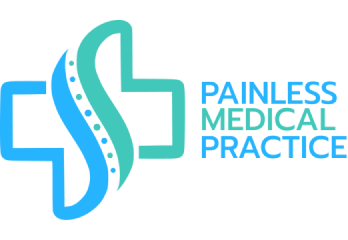Discography in Chicago
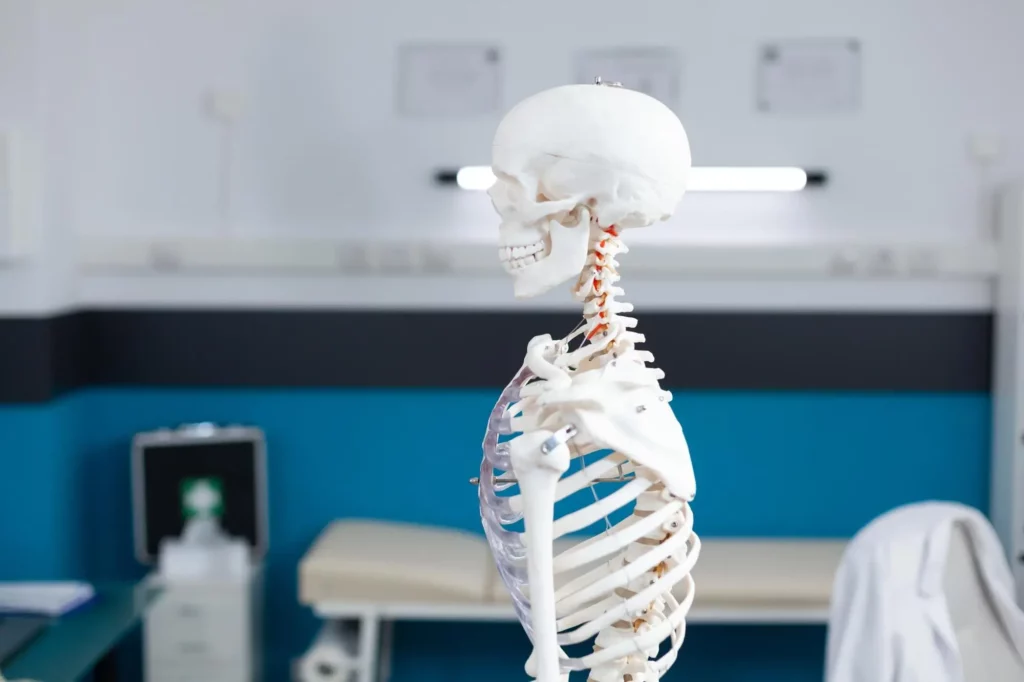
What is Discography?
Discography is a diagnostic procedure used to pinpoint the cause of back or neck pain. It’s especially useful for identifying damage in the spinal discs, which may be the reason for chronic low back or neck pain.
This procedure can be helpful when other imaging tests, like MRIs, don’t show clear results. Discogram allows doctors to target the exact source of pain, so they can recommend the best treatment options, whether it’s physical therapy, injections, or even surgery. It’s a valuable tool for creating a treatment plan that addresses pain correctly.
How Does Discogram Work?
The discogram procedure works by helping doctors identify specific discs in the spine that may be causing pain. During the procedure, a contrast dye is injected into the center of one or more spinal discs using a thin needle. This dye highlights any damage or irregularities in the disc, which can then be seen on X-ray or CT images. If the injected disc is the source of your pain, the injection may briefly recreate it, confirming the problem area. By targeting and visualizing the discs, doctors get a clearer picture of where the issue actually is, allowing them to create a treatment plan. Discography, also known as a discogram procedure, is often used when other imaging tests are inconclusive, and it plays an important role in diagnosing disc-related back pain before considering surgical options.
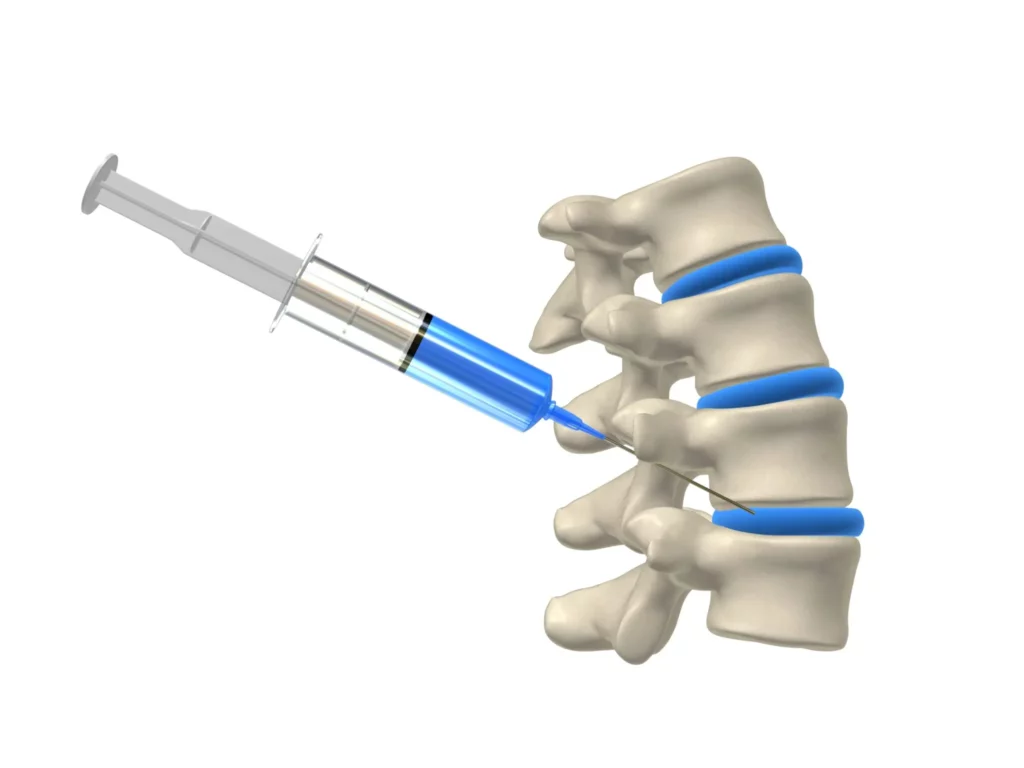
Purpose and Benefits of Discography Treatment
- Identifies the Source of Pain. A positive discogram treatment helps identify the specific disc causing back or neck pain, making it easier to create an effective treatment plan.
- Gives Clear Imaging. By injecting contrast dye, discography highlights any damaged or problematic discs on X-rays or CT scans.
- Guides Treatment Options. Knowing exactly which disc is causing pain helps doctors choose the best treatment for each patient.
- Provides Personalized Care. Discography allows for a more personalized pain management, meaning treatments are more likely to work for your specific issue.
- Helps Avoid Unnecessary Treatments. By identifying the exact source of pain, discography can prevent patients from undergoing unnecessary treatments that don’t address the real problem.
Discogram Procedure Details
Here’s how the discography procedure looks like in general:
- Preparation. At the pain management clinic, you’ll change into a gown, and the area of your back or neck will be cleaned. A local anesthetic is usually applied to numb the area, so you’re comfortable during the procedure.
- Positioning and Imaging. You’ll lie on an X-ray table, and the doctor will use imaging to guide the needle precisely into the targeted disc for the discography procedure.
- Injection. A contrast dye is injected into the disc, which may briefly recreate your pain if the disc is damaged. This discogram pain reaction helps confirm the exact location of your pain source.
- Imaging and Results. X-rays or CT scans are taken to capture images of the disc and any abnormalities, allowing the doctor to see the dye’s spread within the disc.
- Aftercare. You’ll rest briefly before going home. The doctor will discuss the results and create a fully personalized treatment plan based on the findings.
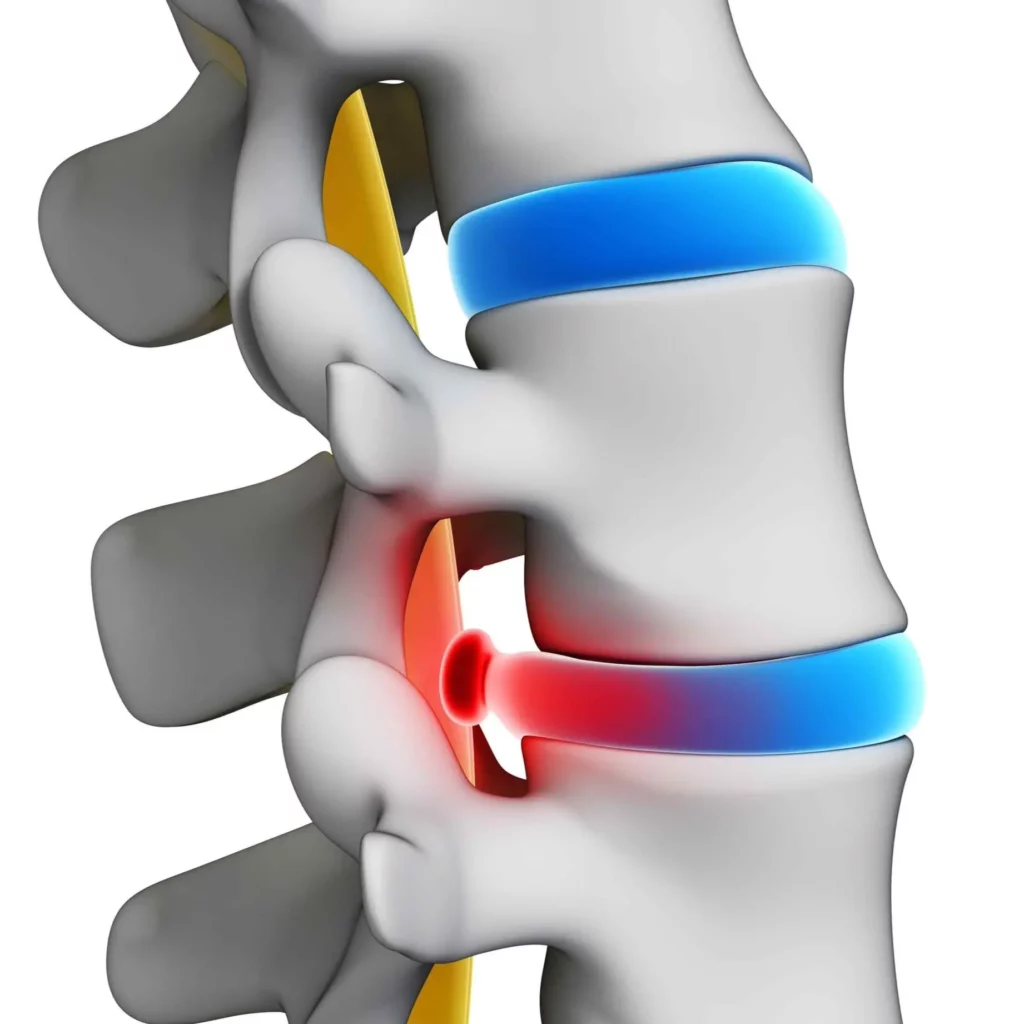
Conditions Discography Helps Diagnose
The lumbar discography procedure can pinpoint specific discs causing ongoing lower back pain.
A discography medical procedure can identify which discs are bulging or herniated and causing nerve pain.
This procedure helps determine which discs are worn down, helping doctors understand the extent of the degeneration.
The cervical discogram procedure allows doctors to identify problem discs causing chronic neck pain.
Discography can help detect any discs that may be pressing on spinal nerves, which is common in spinal stenosis cases.
For those who’ve had back surgery but still experience pain, discography can help find any remaining problem areas that may need extra treatment.
What to Expect After a Discography Procedure
After a discography procedure, it’s common to feel temporary soreness or mild discomfort at the injection site. This soreness usually fades within a few days. Applying an ice pack to the area can help reduce any swelling or discomfort. Over-the-counter pain relievers may also be used, but it’s best to avoid anti-inflammatory medications for the first 24 hours, as they can interfere with the diagnostic results. Resting and avoiding strenuous activities for a day or two can help the injection site heal better. Your doctor may provide specific instructions on when to resume normal activities. If you notice any unusual symptoms like redness, warmth, or persistent pain at the injection site, contact your healthcare provider.

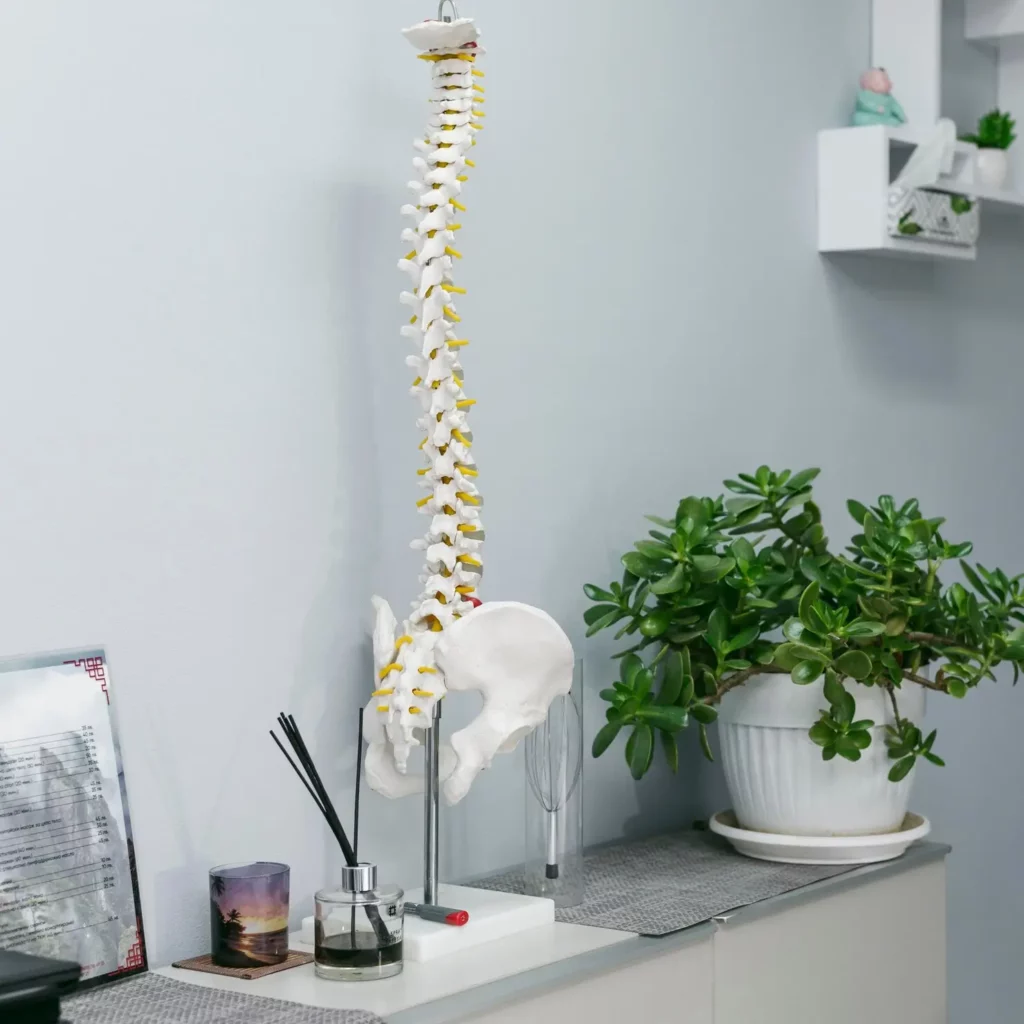
Discogram Results and Next Steps
After a discogram procedure, your doctor will review the images to assess whether any discs show signs of damage or irregularity. If the injected dye spread unevenly or caused a pain response, it suggests that the disc may be the source of your symptoms. The level of discomfort experienced during the procedure can also help confirm which discs are problematic.
Based on these results, your doctor will recommend the best next steps for treatment. If the damage is mild or moderate, they might suggest conservative treatments like medication, physical therapy, or lifestyle modifications. For more severe cases, especially if conservative treatments haven’t worked, surgery might be considered as a last option.
What Are the Risks and Side Effects of Discography?
- Temporary Pain or Soreness. Some patients experience mild pain or soreness at the injection site, which usually fades within a few days.
- Increased Back or Neck Pain. The procedure may temporarily recreate or increase your back or neck pain.
- Infection. As with any injection, there’s a small risk of infection at the injection site. Your doctor will take precautions to minimize this risk.
- Nerve Irritation. In rare cases, the needle used during the procedure may irritate nearby nerves.
- Headache. Some people experience mild headaches after the procedure, especially if the neck area was involved. These usually go away after a day or two.
- Allergic Reaction. Although uncommon, some people may react to the contrast dye used in the discogram. Inform your doctor if you have any dye allergies.
for your pain needs
Choose Painless Medical Practice for Discography in Chicago, IL
Choose Painless Medical Practice in Chicago, IL, for your discography medical needs and benefit from expert, genuine care led by Dr. Jaroslav Tymouch, MD and Founder. With years of experience in pain management and regenerative medicine, Dr. Tymouch and his team are dedicated to helping you feel your best. Alongside Botox, we also offer a wide variety of other effective treatments like epidural injection, joint injections, and laser therapy to address pain, making our clinic a top choice for all your pain management needs. Whether you’re dealing with chronic back pain, preparing for a lumbar discogram, or need a health discography evaluation, our clinic provides the highest possible level of personalized care.
Our team is here to carefully guide you through each step, answering your questions and helping you understand your options. Ready to feel the difference? Contact Painless Medical Practice today to schedule your consultation and learn how we can help you!

Our Insurance Partners









FAQs About Discography in Chicago
What Is a Discography?
Discography, also known as a discogram, is a diagnostic procedure used to identify the source of back pain by examining the discs in the spine. During the procedure, a contrast dye is injected into specific spinal discs, which is then observed under imaging to detect any abnormalities or issues within the disc structure.
What Is a Discography Used For?
Discography is primarily used to determine whether a damaged or degenerated spinal disc is the source of a patient’s back pain. By isolating and evaluating the pain response in each disc, doctors can better assess whether disc-related issues are contributing to the pain, helping guide treatment options like surgery or other interventions.
How Painful Is a Discogram?
A discogram may cause discomfort or pain, especially if the injected disc is the source of the pain being investigated. The procedure is typically done with sedation to minimize discomfort, and any pain experienced is generally brief. Your doctor will work to ensure you are as comfortable as possible during the process.
How Long Does a Discogram Take?
A discogram procedure usually takes about 30 to 60 minutes to complete, although the entire visit may be longer due to pre-procedure preparations and post-procedure monitoring. Your healthcare provider will give you specific instructions and ensure you are monitored for a short time after the procedure.
What Are the Risks of Discography?
While discography is generally safe, there are some risks involved. Potential risks include infection, bleeding, nerve injury, or a temporary increase in back pain after the procedure. Your healthcare provider will discuss these risks with you beforehand to ensure you’re fully informed.
What People Say About Discography
our services before
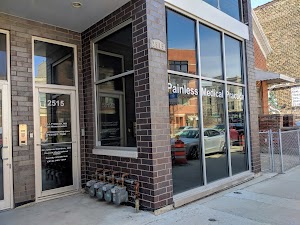
If you are looking for a knowledgeable, compassionate and highly skilled professional, I highly recommend Dr Tymouch. His expertise truly stand out!
Dr. Tymouch took the time to carefully explain everything, answer my questions, and made me feel completely at ease throughout the entire visit. He treated my knee pain with injections, and the results were truly amazing and fast. I happy that I will be able to enjoy my vacation without discomfort. I’m so grateful for his care and highly recommend Dr. Tymouch to anyone in need of expert, compassionate treatment.
The team is professional, compassionate, and highly skilled at managing different types of pain.
